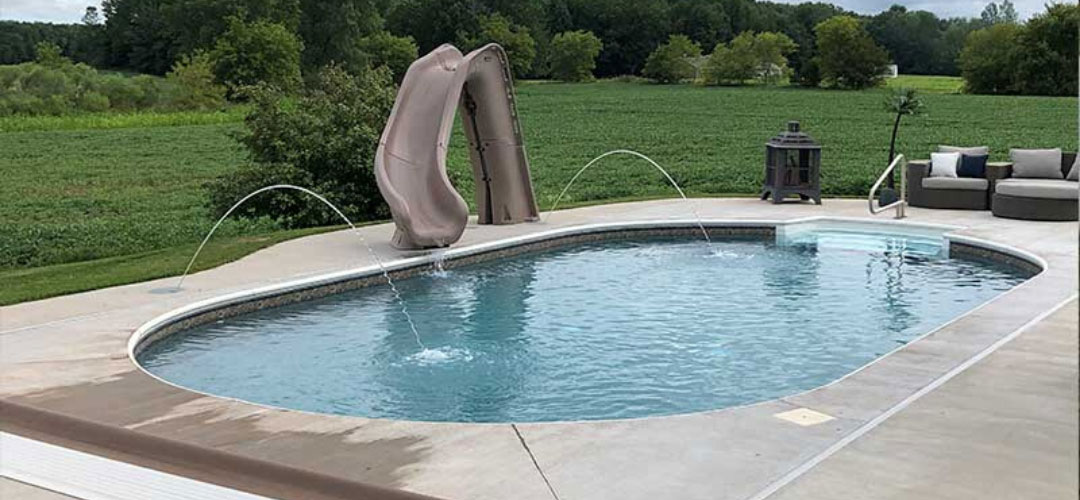Winter is upon us, and it’s the time of year when we start thinking about our beloved above ground pools. But, do you know if your above ground pool needs to be drained during the winter months? It’s a common question that many pool owners wonder about. In this article, we will explore the answer to this age-old dilemma and provide you with all the information you need to keep your above ground pool in top shape throughout the winter season. So, let’s dive right in and find out if draining your pool is really necessary!
Overview
Introduction to above ground pools
Above ground pools are a popular choice for homeowners who want a convenient and affordable way to enjoy swimming during the warmer months. These pools are typically constructed with durable materials such as steel, aluminum, or resin, and are set up above the ground, as the name suggests. Due to their easy installation and relatively low cost compared to in-ground pools, above ground pools have gained popularity in recent years.
However, with winter approaching, many pool owners wonder whether they should drain their above ground pools or not. In this article, we will explore the factors to consider when deciding whether to drain your pool or use alternative winterizing methods. We will also discuss the pros and cons of draining above ground pools in winter, alternative winterizing methods, and the step-by-step procedure for draining your pool if you choose to do so.
Why winter maintenance is important
Winter maintenance is crucial for the longevity and overall well-being of your above ground pool. During the colder months, the pool is exposed to various risks such as freezing temperatures, snow, and ice. Without proper winterization, these factors can cause irreversible damage to your pool, leading to costly repairs or even the need for a replacement. By taking the necessary steps to maintain your pool during winter, you can protect your investment and ensure more enjoyable swimming seasons in the future.
Factors to Consider
Type of pool liner
One of the factors to consider when deciding whether to drain your above ground pool is the type of pool liner you have. Pool liners come in various materials such as vinyl, fiberglass, or concrete, each with its own properties. Vinyl liners, for example, are more susceptible to damage from freezing temperatures and may require draining to prevent costly repairs. On the other hand, fiberglass and concrete liners are more durable and can withstand winter conditions without draining. Consider the material of your pool liner and its vulnerability to cold temperatures before making a decision.
Winter temperatures
The severity of winter temperatures in your area is another factor to consider. If you live in a region with mild winters, where temperatures rarely drop below freezing, you might not need to drain your pool. In such cases, using alternative winterizing methods can adequately protect your pool. However, if you reside in an area with harsh winters and frequent freezing temperatures, draining the pool might be necessary to prevent damage caused by expanding ice.
Local climate and weather patterns
Understanding the local climate and weather patterns in your area is essential for making an informed decision about winterizing your above ground pool. Consider factors such as average snowfall, ice formation, and the duration of freezing temperatures. Additionally, if your region experiences frequent and heavy snowfall, the weight of the snow on the pool cover can put pressure on the pool walls. This can lead to structural damage if the pool is not drained. Evaluate the climate and weather patterns in your area to determine the best approach for winter maintenance.
Usage during winter
Another factor to consider is whether you plan to use your above ground pool during the winter months. If you don’t engage in winter swimming and recreational activities, draining the pool might be a viable option. However, if you have a heated pool or enjoy the invigorating experience of cold-water swimming, it may be more practical to explore alternative winterizing methods instead of draining the pool.
Maintenance and cleaning
The level of maintenance and cleaning required for your pool during winter is another aspect to think about. Draining your above ground pool means you will need to thoroughly clean and dry the pool before refilling it in the spring. This can be time-consuming and labor-intensive. On the other hand, if you choose to use alternative winterizing methods, regular maintenance such as removing debris from the pool and monitoring chemical levels will still be necessary to keep the pool in good condition.
Pool cover and closing method
The quality and effectiveness of your pool cover and closing method will determine the level of protection your pool receives during winter. A high-quality pool cover designed specifically for winter use can provide insulation and prevent debris from entering the pool. Some pool covers even have features to combat ice formation. Additionally, ensuring a proper closing method, including securing the cover tightly and sealing any potential entry points, is crucial in keeping your pool safe during winter. Consider the condition of your pool cover and the closing method used when deciding whether to drain your pool or explore alternative winterizing methods.
This image is property of images.pexels.com.
Pros and Cons of Draining Above Ground Pools in Winter
Advantages of draining
Draining your above ground pool before winter has several advantages. Firstly, it eliminates the risk of damage caused by expanding ice. When water freezes, it expands, and if there is water remaining in the pool, it can exert pressure on the pool walls, leading to cracks or even collapse. Secondly, draining the pool can prevent damage to the pool liner, especially if it is made of vinyl, which is more susceptible to cold temperatures. By removing the water, you reduce the likelihood of the liner tearing or developing leaks. Lastly, draining the pool allows for a fresh start in the spring, as you can thoroughly clean and inspect the pool before refilling it.
Disadvantages of draining
While draining your above ground pool may seem like a straightforward solution, it also has its drawbacks. Firstly, the process of draining the pool can be time-consuming and labor-intensive, especially if you have a large pool. Additionally, once the pool is drained, it can be exposed to potential damage from strong winds, heavy snow, or falling debris, which may require additional preventive measures. Lastly, completely emptying the pool means you won’t be able to use it during the winter months, which may be disappointing for those who enjoy winter swimming or use the pool for physical therapy.
Alternative Winterizing Methods
Winterizing chemicals
If draining your pool in winter doesn’t seem like the best option for you, there are alternative methods to winterize your above ground pool. One of these methods involves using winterizing chemicals. These chemicals are specifically designed to help protect the water and the pool equipment during winter. By adding the appropriate winterizing chemicals to your pool and following the recommended dosage, you can prevent algae growth, enzyme build-up, and corrosion. Winterizing chemicals work by creating a protective layer and balancing the pH levels of the water, ensuring that your pool remains clean when not in use.
Winter pool covers
Investing in a high-quality winter pool cover is another alternative method for winterizing your above ground pool. Winter pool covers are specifically designed to withstand the harshest winter conditions. They provide insulation, prevent debris from entering the pool, and reduce the risk of algae growth. Look for a cover that is made from durable materials and has features like reinforced seams, UV protection, and anti-rip properties. Additionally, properly securing the cover using a reliable closing method will ensure it stays in place throughout the winter months, protecting your pool from potential damage.
Winter maintenance routine
Implementing a winter maintenance routine is crucial when using alternative winterizing methods for your above ground pool. This routine should include regular removal of debris that accumulates on the pool cover, monitoring the chemical levels, and inspecting the pool equipment for any signs of damage. Additionally, it is essential to maintain a proper water level and ensure adequate circulation to prevent stagnation and water contamination. By following a consistent winter maintenance routine, you can extend the lifespan of your pool and reduce the risk of future problems.
This image is property of images.pexels.com.
Procedure for Draining Above Ground Pools in Winter
Preparation steps
Before draining your above ground pool for winter, it is essential to take a few necessary preparation steps. Begin by turning off the pool pump and filtering system to prevent any potential damage. Next, remove any pool accessories, such as ladders, handrails, or skimmer baskets. Thoroughly clean the pool, removing any debris, leaves, or dirt that may have accumulated. Once the pool is clean, brush the pool walls and floor to remove any algae or buildup. Taking these preparation steps ensures that your pool is in the best condition for the draining process.
Draining the pool
To drain your above ground pool, you have various options. One common method is to use a submersible pump. This pump can be placed inside the pool, and the water can be pumped out through a hose or a drainage system. Another option is to use the pool’s filtration system to drain the water, although this method may take longer. Alternatively, if your pool has a drainage valve, opening the valve and allowing the water to flow out is a straightforward solution. When draining the pool, ensure that the water is directed away from the pool area and does not cause any flooding or damage to neighboring properties.
Maintaining the empty pool
Once the pool is drained, it is crucial to maintain the empty pool to prevent any potential damage. Thoroughly clean the pool walls and floor, removing any dirt or remnants of algae. Inspect the pool liner for any signs of damage, such as tears or punctures, and repair them if necessary. Additionally, remove any debris that may have accumulated inside the pool. To protect the pool from the elements, consider covering it with a tarp or securing the pool cover tightly to prevent it from being blown away by strong winds. Regularly check the pool throughout the winter to ensure it remains in good condition.
Refilling and reopening the pool
As winter comes to an end and warmer weather returns, it’s time to refill and reopen your above ground pool. Begin by removing the pool cover and cleaning it thoroughly. Inspect the pool liner and repair any damage that may have occurred during the winter. Once the pool is cleaned, filled with water, and the water level is optimized, reconnect the pool pump and filtration system. It is essential to balance the water chemistry and monitor the chemical levels, ensuring that they are within the recommended range. Finally, run the pool filtration system for a few days to ensure optimal water quality before enjoying your pool once again.
Safety Considerations
Avoiding damage to the pool
When considering draining your above ground pool or using alternative winterizing methods, it is vital to prioritize safety to avoid damage to the pool. If you choose to drain the pool, ensure that the draining process is done correctly to prevent any issues that may arise from improper procedures. Furthermore, removing any pool accessories and cleaning the pool properly before draining can help maintain the pool’s integrity. If you opt to use alternative winterizing methods, follow the manufacturer’s instructions when using winter chemicals and ensure that the pool cover is installed and secured correctly to provide maximum protection.
Preventing accidents and injuries
Safety is of utmost importance, and precautions should be taken to prevent accidents and injuries during the winter months. When draining the pool, be cautious of slipping hazards due to wet surfaces. Use appropriate equipment and follow safety guidelines to avoid physical strain or injury while performing tasks related to pool maintenance and winterizing. If you have young children or pets, ensure that the pool area is properly secured to prevent any accidental falls or access to the pool. Taking the necessary safety measures will help in creating a safe environment and minimize any potential risks associated with winter maintenance.
This image is property of images.pexels.com.
Conclusion
Summarizing the key points
In conclusion, deciding whether to drain your above ground pool in winter requires careful consideration of several factors. Factors such as the type of pool liner, winter temperatures, local climate and weather patterns, usage during winter, maintenance requirements, and the quality of the pool cover and closing method all play a significant role in making the best decision for your pool.
While draining your above ground pool may provide certain advantages such as eliminating the risk of ice damage and allowing for a fresh start in the spring, it also has drawbacks, including the time and effort required, potential exposure to damage, and the inability to use the pool during winter.
Alternative winterizing methods such as using winterizing chemicals, investing in a high-quality pool cover, and implementing a winter maintenance routine can help protect your pool from winter hazards and extend its lifespan.
Final recommendation
Ultimately, the decision to drain your above ground pool or use alternative winterizing methods depends on your specific circumstances and preferences. Consider consulting with a pool professional or experienced pool owners in your area for personalized advice.
Whichever route you choose, prioritize safety and follow proper procedures. By taking the necessary steps to maintain your pool during winter, you can protect your investment and ensure many more enjoyable swimming seasons in the future.







